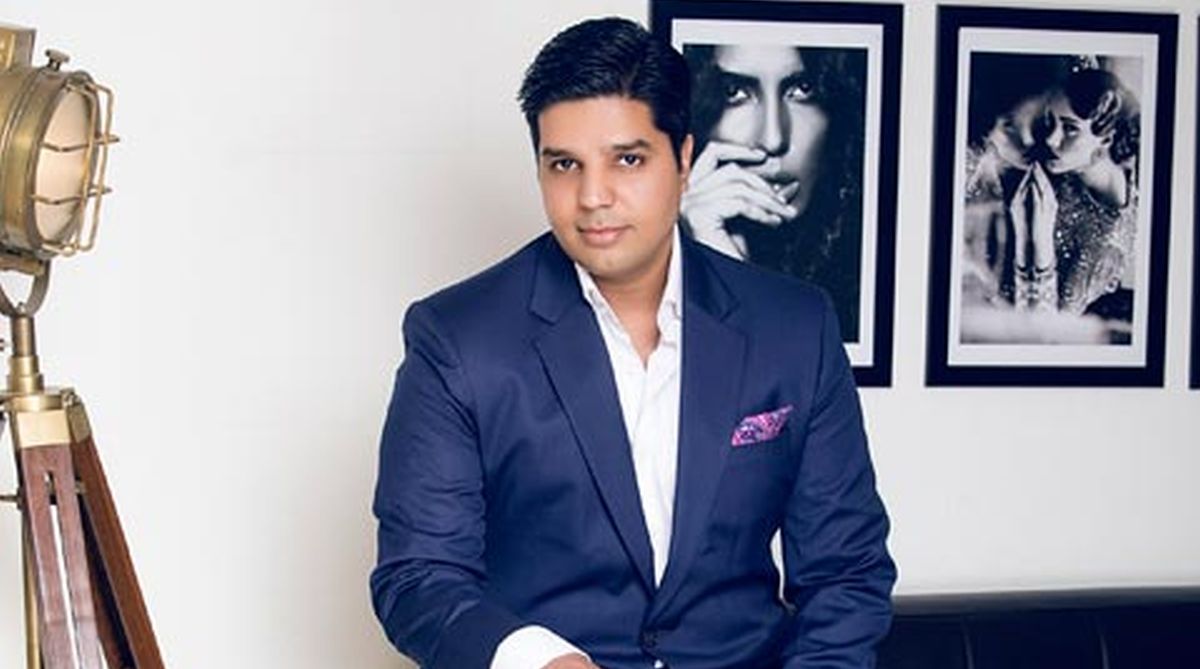The creative instinct of Ambud Sharma made him step out of the comfort zone of a stable job at a large telecom company in the US. His inherent urge of creative problem solving pushed him to explore the vast possibilities in AI-based fashion.
Today he is the founder and CEO of Ligo group that owns and operates the luxury lifestyle brand Escaro Royale. He is a visionary, with a hunger for attaining the perfect blend between technology and fashion that has paid off in creating a promising brand. Excerpts:
Advertisement
Q. What motivated you to switch from software researching to fashion?
Here’s my hero-to-zero-to-hero story. As an accomplished software engineer in a large telecom company in the US, I was settling into the comfort zone of the nine to six grind. As my experience and team size grew, I wanted to do something that resonated with my creative side. Even in software engineering, I was constantly filing patents.
Creative problem solving is inherent to my personality and I had honed my skills in programme and product management over the eight years of my professional career. I had a habit of constantly interacting with bright entrepreneurs. In one such interaction, I met a bright bunch of guys who were doing some interesting stuff in e-commerce and were desperately looking for a senior guy to help them streamline their processes and programmes top down. I joined them as chief operating officer. Unfortunately, the company went under within a few months due to a cash crunch. This was my first failure.
By this time, I had built a decent network in the Indian entrepreneurial circles and had mentored quite a few start-ups. After a lot of analysis, I figured out that fashion, education, and wellness were the three most favourable sectors for new entrepreneurs. I saw a lot of potential in AI-based fashion since pretty much every player was playing on discounts and not value additions.
I picked fashion because of its abstract and fast-moving nature where the impact was immediate. For something as abstract as fashion, it was pretty challenging to give it a technological edge especially when the idea was to differentiate in value and service quality.
That’s when all the software, programme management, and product development expertise came into play. I quickly set up teams and started working towards building a consumer-centric, tech-enabled and immersive online retail luxury brand for men – – centered around our flagship brand Escaro Royale with service, ease of use and transparency being its cornerstones. Finally, all skills came into play and I learned many more along the way. Professionally, I feel more holistic now!
Q. What breakthroughs has the brand achieved in reinventing men’s fashion?
The fashion choices to Indian men have always been limited. The same cuts, the same shoes, the same bags — with maybe a bit of change here or there. We came up with original hand-painted shoes in the Indian market, hyper-useful leather bags that were engineered while keeping ease of- use in mind.
More than reinventing fashion through over 2000 colours, shades, and patterns in men’s style, we have also reinvented the online luxury experience. We are doing good business based on the designs, service and impeccable craftsmanship. We believe the omnichannel retail – buy anywhere, get anywhere in the future and we are actively moving towards it.
Q. What inspires the brand’s intricate designs?
It’s the never-say-never attitude, to be honest. We love doing what most people say cannot be done. We play with the boldest colours and loud patterns. We play on the edges of being horrendous! That’s our game. We don’t shy away from being trend leaders.
Q. How is modern technology contributing to the world of fashion?
The future is about service and seamless ease of use when it comes to fashion. Apart from advances in 3D design and rendering, the fashion sales will be more driven by the relevant content marketing and immersive tech-based retail experience.
The future is about customisation and personalisation and only cutting-edge technology can make it happen in a world as abstract as fashion. Consumer insights, trends analytics, seamless UX would play most heavily in the future of fashion, especially sales.
Q. How eco-friendly is the process that transpire to create high-end fashion products and accessories for men?
We only use eco-friendly and non-chemical hypoallergenic paints to hand-paint our products. We procure our raw materials from the world’s environment-friendly and environment-responsible factories. It is important to note that even our manufacturing processes are certified to ensure excellent working conditions. This, we believe, allows for happier manufacturing workers that results in a reduction of overall waste. This adds to our eco-friendly nature of the business.
Q. What exclusive can customers expect from the brand’s products?
Our customers can expect not-seen before hand-painted designs, world-class craftsmanship, an essence in the products that states it comes from tasteful minds and class of customer service that leaves the best of the organisations in awe. We take pride in being a nimble, flexible and obsessively customer-centric organisation. Moreover, we use only the best materials from around the world – be it leather, accessories or colours and paints.
Q. What is the contribution of big data analytics in the brand’s growth?
We believe that what gets measured gets improved. Analytics, in general, is paramount to any business success. But big data allows you to make more granular decisions that have more impactful magnitudes. We use big data to analyse consumer insights, page heat maps, clicks sales on products and various other factors that provide us with a great strategic advantage.
We analyse everything. On a broader scale, we use a lot of social media feedback to make marketing decisions which are also indirectly based on big data analytics. For retail trends and sequences, as we collect more data and analyse more customer behaviors, we’ll be able to come up with analytics products geared towards the retail industry.
Q. How has digitizing and e-commerce helped in taking the next leap with regard to men’s fashion in the Indian market?
Indian market is still very primitive in these terms. Men seem to be okay buying cheaper stuff online but when it comes to buying a Rs 10,000 ticket size, they seem sceptical. We have seen that about 70 per cent of our orders are Cash on Delivery which means that the trust factor for prepaid orders is still amiss.
Digital commerce has allowed for much greater penetration and manifold efficiency since it allows us to be able to market our products and services not only across India but also across the world. About 20 per cent of our orders are from international customers, which wouldn’t have been possible without digitization and e-commerce. For the consumer, it is a great gift since they can view, decide and buy any product from phone or desktop.











